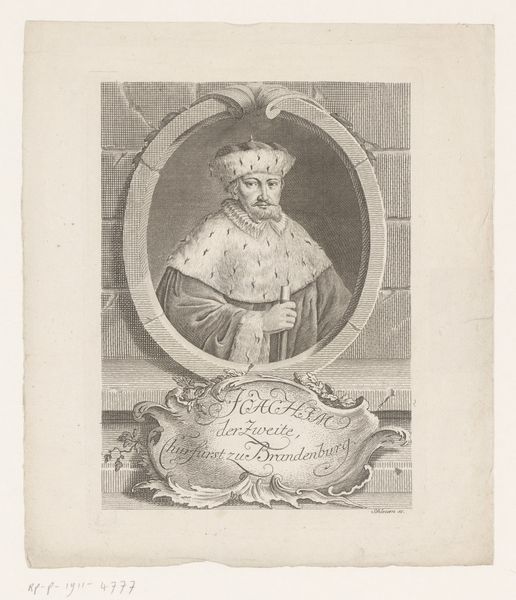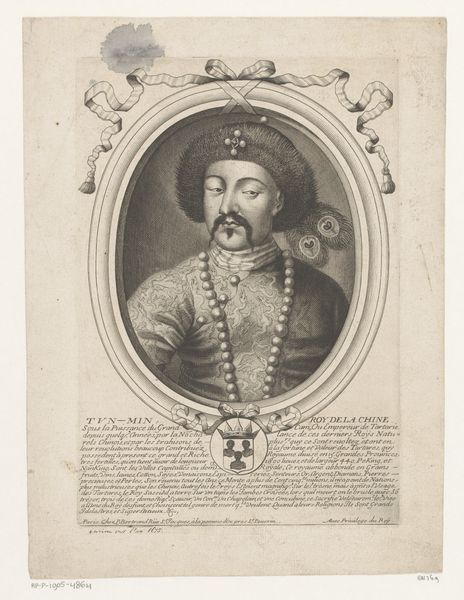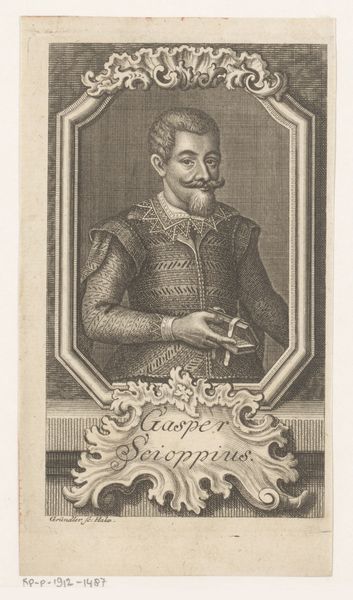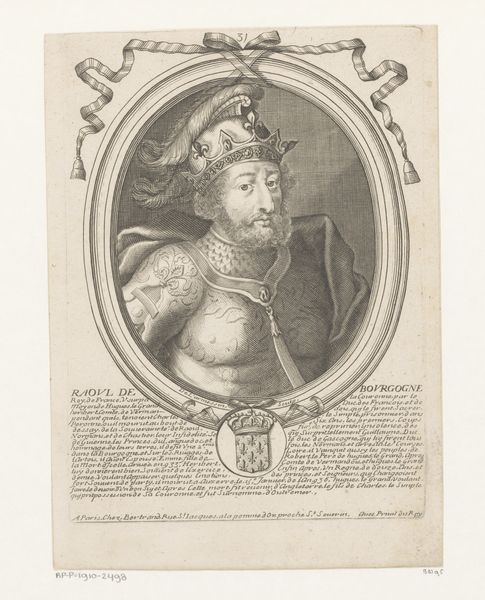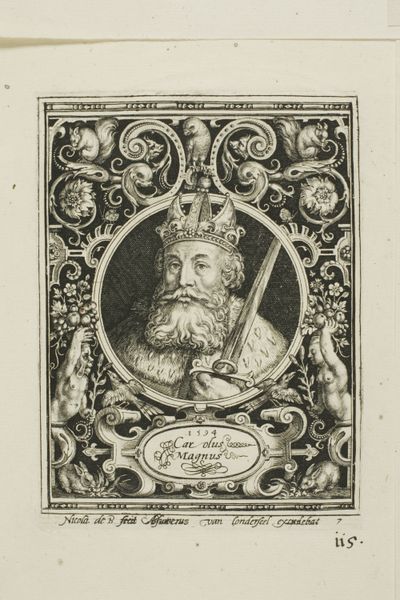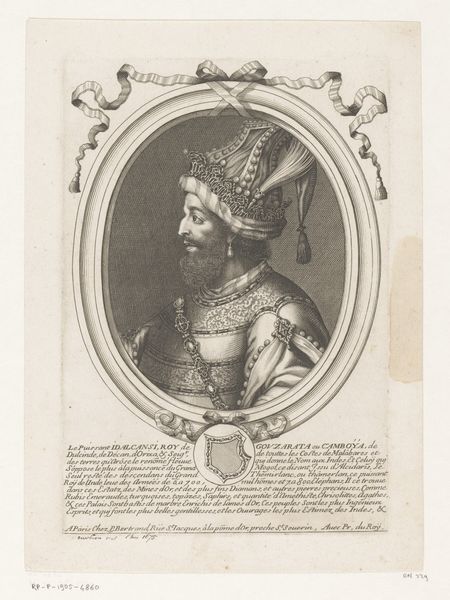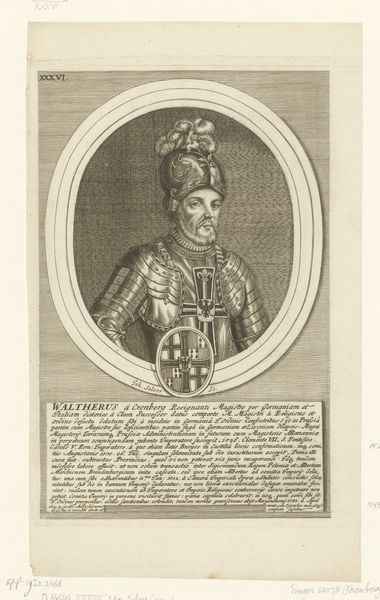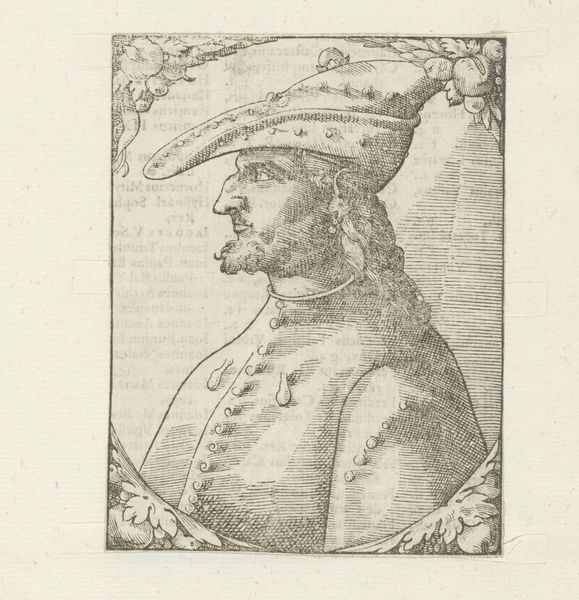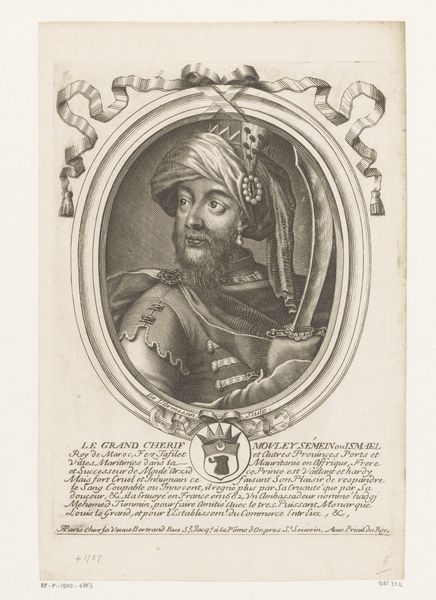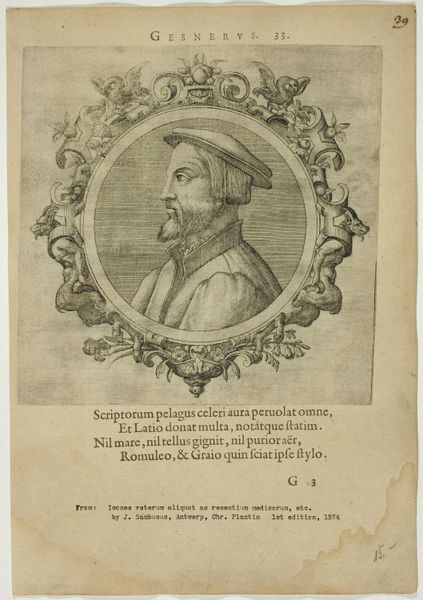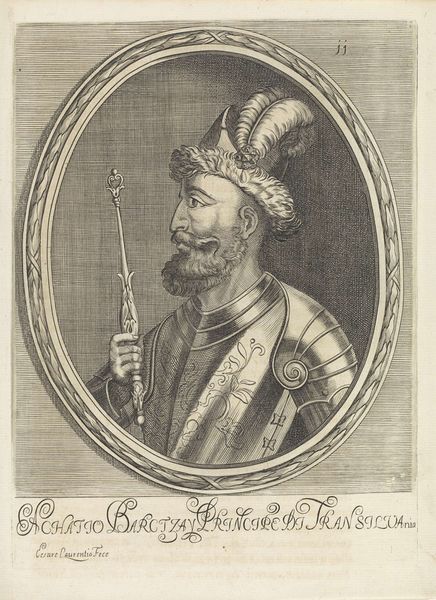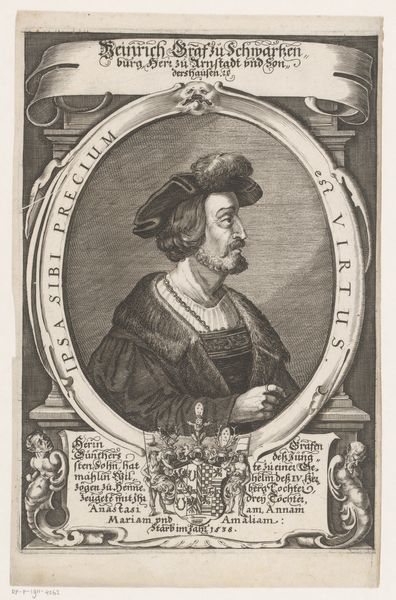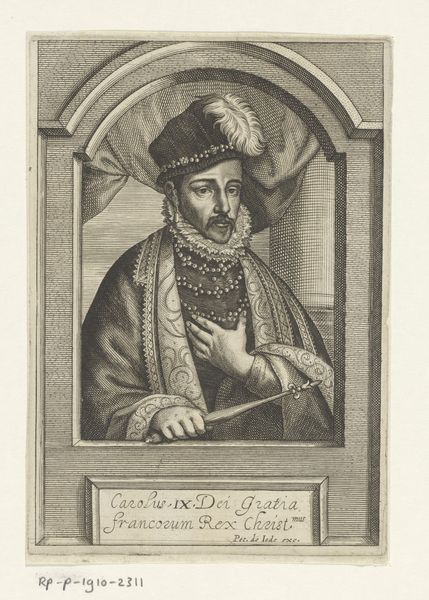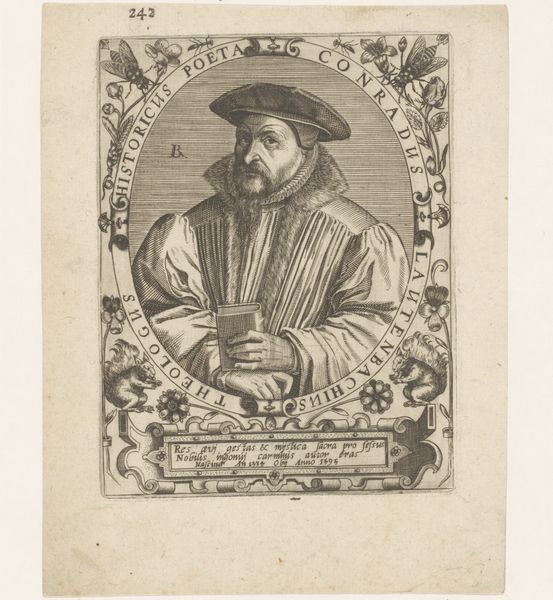
print, engraving
#
portrait
# print
#
figuration
#
line
#
islamic-art
#
history-painting
#
engraving
#
realism
Dimensions: height 172 mm, width 115 mm
Copyright: Rijks Museum: Open Domain
This print of Abdülhamid I, Sultan of the Ottoman Empire, was made anonymously, likely sometime around 1789. The print was created using etching and engraving; these are both intaglio processes, which means the image is incised into a metal plate, in this case copper, and then transferred to paper. Look closely, and you’ll see the extraordinary level of detail that this process allows. The lines create tone, texture, and form, from the Sultan’s fur-trimmed robes to the lettering on the plinth below his portrait. The etcher uses layers of short, fine lines to create a sense of depth and shadow. The engraving allows for even finer details, like the elaborate turban. Prints like these were often made in multiples, meaning that they were relatively accessible. This particular print creates an aura of power through its textures, and detailed rendering, while also speaking to the technologies that made images like these popular. It's a fascinating reminder that even ostensibly unique artworks are always tied to their means of production.
Comments
No comments
Be the first to comment and join the conversation on the ultimate creative platform.
